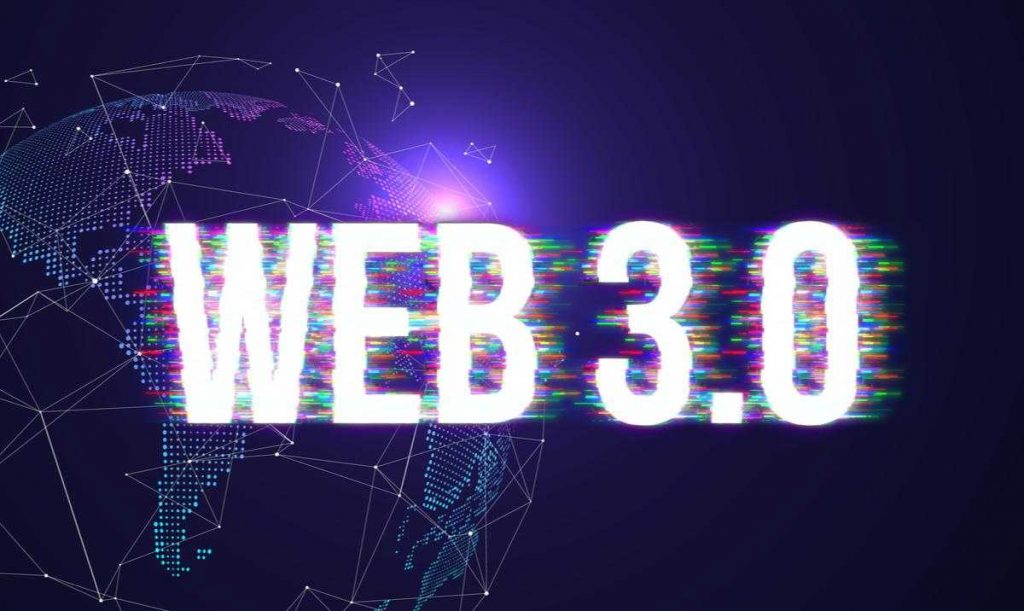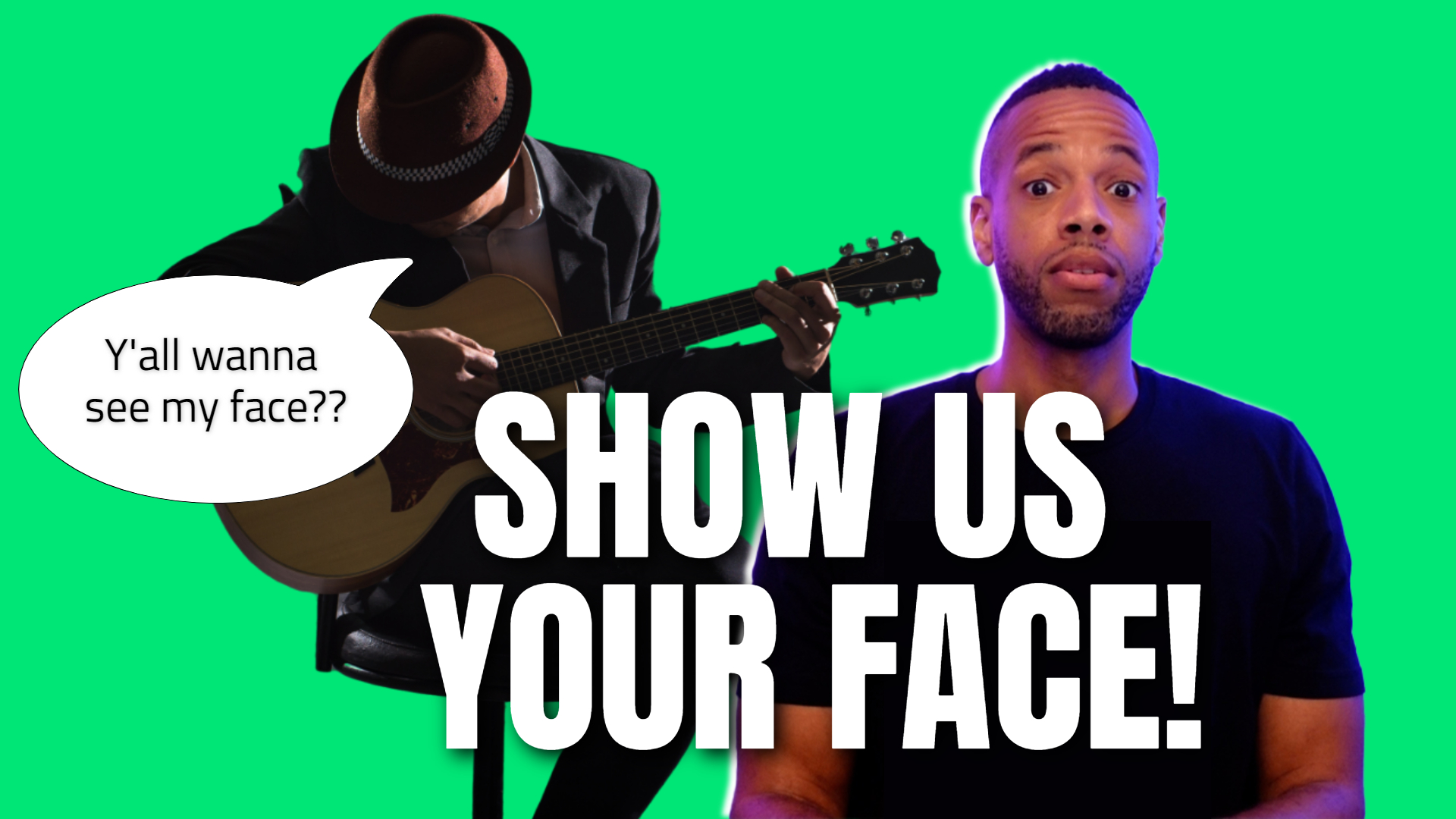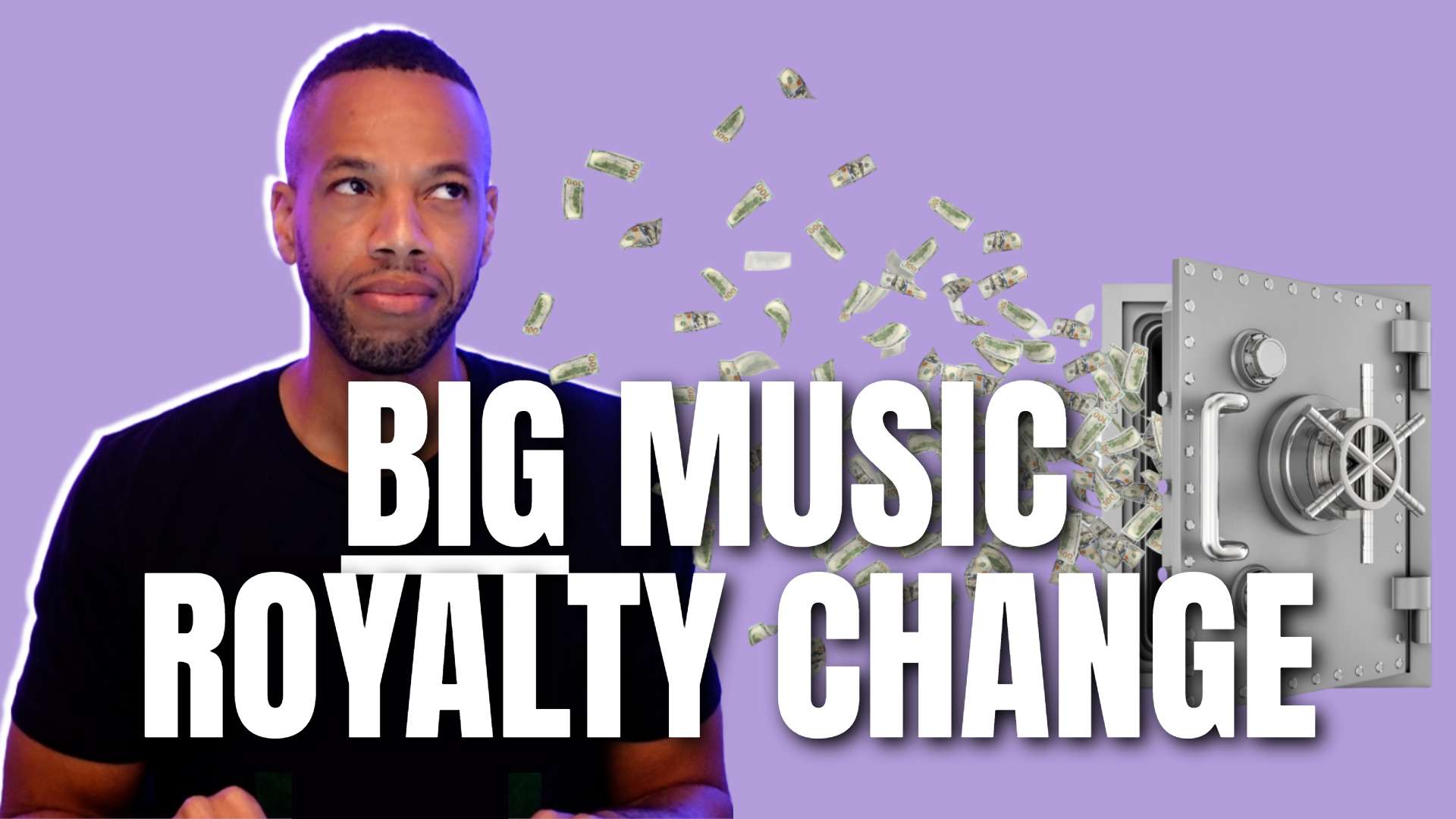7 Music Blockchain Projects That Will Shape Web 3 Forever

*This article may contain links to affiliate products & services. We have reviewed these services to try and ensure the highest quality recommendations*
Written by Ramsey Brown.
With new Web 3.0 developments and growing music blockchain-based projects, the future shape of the music industry is being completely reevaluated.
The industry hasn’t always welcomed blockchain technology with open arms, but when artists like Grimes and 3LAU started to earn millions of dollars within the matter of hours from NFT sales, it triggered a natural interest for others to get in on the crypto action.
We’ve all heard about the many musicians, celebrities, and companies hopping on the NFT bandwagon within the past few years, proving to the world how lucrative and boundless the digital asset market is.
Although it took some time to adjust, many people in the music industry have woken up to the importance of Web 3 and realizing it’s significance in the future of the business. Subsequently, Web 3 is beginning to come into sharper view as more artists and music companies are starting to experiment with the Blockchain technology.
The music industry is now looking further beyond just NFTs and into other uses of crypto. New developments and applications have emerged to integrate the Blockchain into artists’ long-term marketing strategies and business models.
From blockchain-based music streaming platforms, event ticketing solutions, creator social tokens, DeFi royalty distribution, fan-centric communities, and so much more — these recently launched projects are shaping the music and web 3 landscape as a whole.
Below we are going to take a look at 7 music blockchain companies and their projects that have established in the past couple of years. All of which are a testament to the momentum of Web 3 and its solutions for artists and the overall music industry.
1. Muscoin
Musicoin is a music streaming platform built on the blockchain that supports the creation, distribution and consumption of music in a shared economy. Listeners can stream songs from independent musicians on the platform absolutely free and without ads, while musicians are compensated more fairly than major music streaming platforms in the industry.
Musicoin uses the blockchain to power a decentralized, peer-to-peer, platform — similar to Bitcoin or Ethereum. The implementation of the blockchain allows Muscoin to host music available to everyone and transactions that are transparent and secure. It also means that there are no third-parties involved and musicians get 100% of the revenue from their streams.
Each stream operates on a Pay-Per-Play (PPP) basis. Every time a song is streamed, $MUSIC is automatically transferred to the musician or all parties of a group. Users can also directly “tip” $MUSIC to your favorite musicians and directly support appreciation for the music they create.
2. Audius
Audius (AUDIO) is a blockchain-based decentralized music streaming platform. The project aims to give artists and curators more control over their music creations. When artists upload content to Audius, they can produce immutable records for their work, which will be secured by a decentralized network of nodes.
Audius removes the middlemen in the traditional music industry by connecting artists directly to their fans. Artists have the sole ownership of their music and can decide how to monetize them on the platform. They can distribute their music free of charge or set custom fees for fans to unlock exclusive content.
Unlike other music streaming services, Audius does not take a cut from artists’ revenue. Music curators can receive 90% of the revenue in AUDIO, the native cryptocurrency of Audius. The other 10% will be given to stakers that support the Audius network.
3. Royal
Royal is a platform that sells song rights as NFTs, allowing artists and their fans to co-own music and earn royalties together. Royal opens the door for artists to retain independence and creative control as fans fuel their careers.
It works by the artist choosing what percentage of the song's royalties to put up for sale. They can also bundle fan experiences, special tracks, digital art, or anything else the artist decides on.
Users can then purchase these streaming royalties in the form of 'tokens', directly from the artist. Once users buy a token, they then claim royalties for the song after they've accrued. The time to payout will vary depending on the artist.
These tokens can also be put up for resale on an NFT exchange. When someone else buys this token, they'll get all the royalties and additional benefits that come with it.
4. Opulous
Opulous is a platform that combines music and DeFi. On this platform, users buy not only a music NFT, but also the copyright of the music, and the monthly royalty income from the music will also be distributed to the holders. In addition, musicians can also apply for loans on the platform with the support of their music works and royalty income.
OPUS seeks to take on the issue of unfair royalty distribution in music streaming head on, operating a decentralized music hosting, discovery and listening platform that allows users to support artists more directly. The platform is based on the Ethereum blockchain with tracks stored on the Interplanetary File System (IFPS) to drastically reduce server costs.
While many popular streaming platforms provide artists with less than 20% of the streaming revenue, which must then be further divided between the artist’s team, expected revenue on OPUS revenue is 90% and above.
The platform incentives music discovery even further by allowing users to receive a share of royalties for creating playlists that help spread music throughout the platform.
5. Melodity
Melodity is taking the music industry one giant step further toward a decentralized creator economy, building Web3 monetization infrastructure to support the industry in new ways.
The company is pioneering a premier, proprietary blockchain ecosystem — with streaming, play-to-earn (P2E) and a music-oriented Metaverse — fostering opportunities for music artists and professionals, influencers, creators, fans, gamers and music lovers. This new concept goes beyond the now-archaic vision of old distribution platforms and suits today’s artful composition and music production markets.
On the platform, artists, cultural icons, content creators, influencers, celebrities, investors and brands are in command, letting them tap into the creative and economic potential of non-fungible tokens (NFTs) by unlocking hidden value and creating new digital assets and virtual experiences.
Melodity is also developing a music NFTs marketplace and concentrating on a music-oriented Metaverse with integration of traditional physical shows.
6. GUTS
GUTS is a ticketing system which uses blockchain technology to register ownership of smart tickets — which makes ticket fraud impossible. The ticket can only be sold or resold at a price set by the event organizer and/or artist, so no more insane prices and fees for secondary tickets.
GUTS designs and applies innovative technology such as blockchain and dynamic QR-codes in order to create an easier-than-ever user experience for any audience. People of all ages can effortlessly use the ticketing system and its features.
Over the past few years, the platform has already successfully ticketed hundreds of events, from stadium concerts to international business conferences to dance parties with thousands of people from dozens of different countries.
OnChain Music exists to help its roster of artists, bands, singer-songwriters, DJs and musicians of all kinds earn more money from their royalties through blockchain and the sale of NFTs. The platform has created the $MUSIC token, a hybrid cryptocurrency that combines characteristics of a utility, governance and revenue share token.
As the value of the $MUSIC token increases, artists signed to OnChain’s roster have the potential to receive increased royalty payments — turning their music into a valuable investment.
Artists and labels receive 85% of all revenue generated from music hosted with OnChain, which is distributed through platforms like Audius, XSongs, Emanate, etc. Revenue is paid out through crypto, which can then be cashed out with either USD or USDT (Tether.)
OnChain’s roster currently features 235 artists, 10 record labels, nearly 2,000 songs, over 300 albums, and is continuing to grow larger by the day.
When your song is ready to go, it's time to start promoting it to potential fans! Omari has the best organic promotion services money can buy. With packages for Spotify, TikTok, Instagram, and YouTube, we will get your music the traffic and attention it deserves! Click below for more information.
SPEAK YOUR MIND
Leave a Reply
How This INDIE Artist Got Over 67,598,275 Streams On ONE Song
Join the No-Nonsense Music Marketing Newsletter to get the most valuable weekly case studies and strategies to grow your music business!





1 Response to "7 Music Blockchain Projects That Will Shape Web 3 Forever"
Hello.
I am a seasoned blockchain and full-stack developer with a passion for building scalable web applications and a deep interest in blockchain technology. My experience spans across developing dynamic frontends using React and robust backends with Node.js and Express, while also integrating decentralized solutions through Ethereum and smart contracts.
With every project, I bring a strong commitment to understanding the unique challenges and a genuine desire to do the job well. I am always striving to exceed expectations and deliver high-quality, efficient solutions that meet business needs.
Thank you for your confirmation.